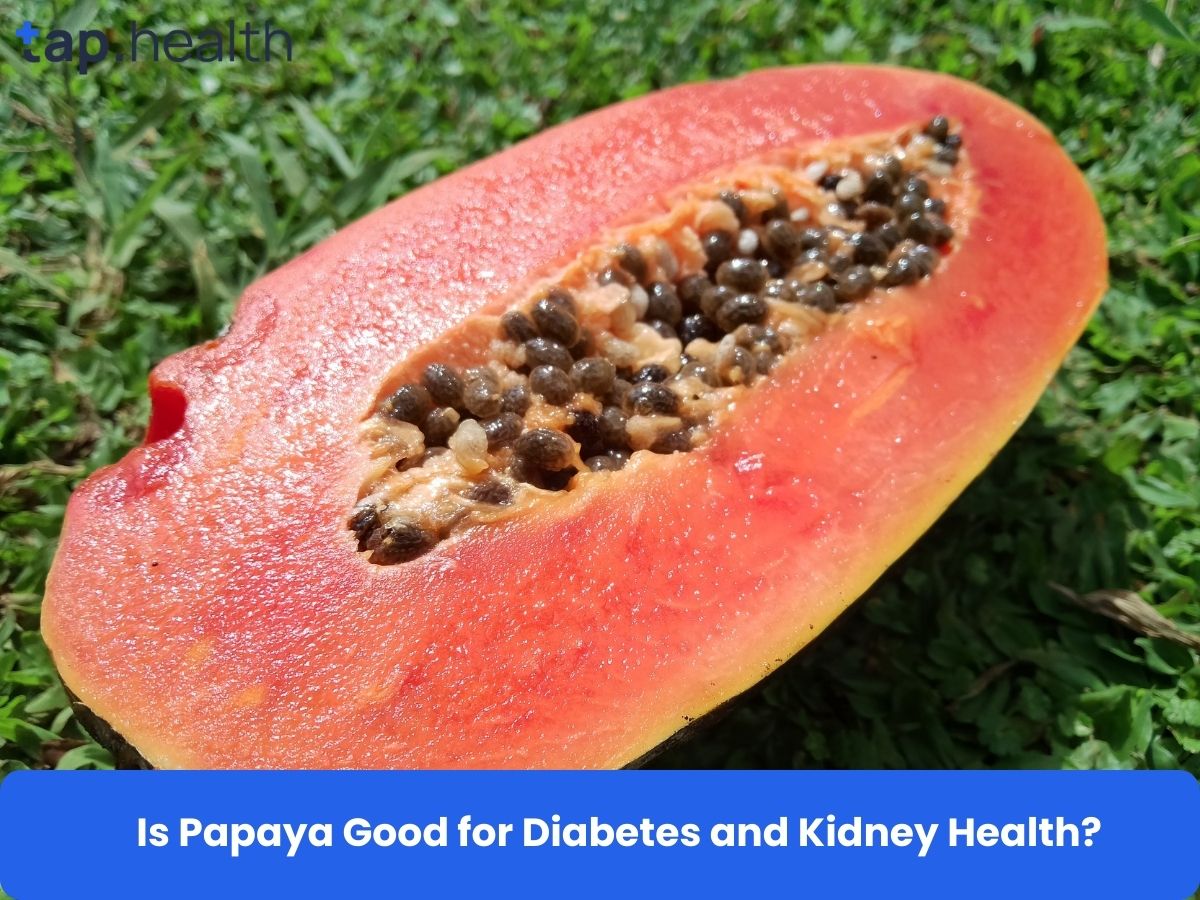Table of Contents
- Global Diabetes Management: Cultural Insights and Best Practices
- Understanding Diabetes Variations Across Cultures: A Comprehensive Guide
- How Culture Impacts Diabetes Treatment: An International Perspective
- Effective Diabetes Care: Tailoring Strategies to Diverse Cultures
- Diabetes Management Across the Globe: Challenges and Opportunities
- Frequently Asked Questions
- References
Living with diabetes is a global challenge, and what works for one person might not work for another. This is why understanding diabetes management across cultures is so crucial. In this blog series, we’ll explore the diverse approaches to diabetes care found around the world, examining how cultural beliefs, access to resources, and even dietary habits significantly impact treatment and outcomes. Get ready to delve into an international perspective on this complex condition and discover how we can learn from each other to improve diabetes management everywhere. We’ll be looking at various aspects including traditional medicine, access to healthcare, and the social determinants of health.
Global Diabetes Management: Cultural Insights and Best Practices
The global burden of diabetes is staggering. A recent report from the IDF Diabetes Atlas projects a rise in the number of people (aged 20-79) living with diabetes from 536.6 million in 2021 to a projected 783.7 million by 2045. This alarming increase necessitates a deeper understanding of how cultural factors influence diabetes management, particularly within diverse regions like India and tropical countries.
Cultural Barriers and Adaptations in Diabetes Management
In many Indian and tropical countries, traditional diets and lifestyles often clash with modern diabetes management recommendations. Dietary habits, deeply ingrained in cultural practices, may include high carbohydrate intakes, making it crucial to adapt dietary advice to local food preferences and traditions. Similarly, access to healthcare varies significantly, with geographical location and socioeconomic status impacting early diagnosis and consistent treatment. Cultural beliefs and practices around healthcare seeking and adherence to medication schedules also play a critical role in successful diabetes management. For example, understanding the role of traditional healers and integrating them into a holistic care plan might improve patient outcomes. The challenges faced are amplified as we age, as highlighted in Managing Diabetes as You Age: Challenges and Solutions.
Best Practices for Effective Diabetes Management in Tropical Climates
Effective diabetes management in these regions requires culturally sensitive approaches. This includes providing diabetes education in local languages, utilizing culturally appropriate educational materials, and engaging community leaders to promote awareness. Developing affordable and accessible treatment options is equally important. Additionally, focusing on lifestyle interventions such as promoting physical activity tailored to the climate and incorporating locally available nutritious foods into dietary plans can significantly improve patient outcomes. For example, promoting locally grown fruits and vegetables over imported options can improve affordability and adherence to dietary recommendations. For practical tips, see 10 Proven Tips for Effective Diabetes Management.
A Call to Action
Addressing the rising diabetes prevalence in India and tropical countries demands collaborative efforts from healthcare professionals, policymakers, and community leaders. By understanding and addressing cultural nuances, we can empower individuals and communities to effectively manage diabetes and improve their quality of life. Let’s work together to create culturally appropriate strategies that promote early detection, effective treatment, and long-term well-being.
Understanding Diabetes Variations Across Cultures: A Comprehensive Guide
The Global Landscape of Diabetes Management
Diabetes disproportionately affects low- and middle-income countries, with over 75% of people with diabetes residing in these regions, as highlighted by the International Diabetes Federation’s Diabetes Atlas. This stark reality underscores the critical need for culturally sensitive diabetes management strategies, particularly within diverse populations across India and tropical countries. Differences in access to healthcare, dietary habits, and lifestyle factors significantly impact disease prevalence and management outcomes.
Cultural Influences on Diabetes Management in India and Tropical Countries
In many Indian and tropical regions, traditional diets and lifestyles play a significant role in diabetes risk. High carbohydrate consumption, limited physical activity, and genetic predispositions contribute to higher incidence rates. Understanding these cultural nuances is crucial for effective intervention. For example, incorporating locally available, nutritious foods into diabetes management plans, and designing exercise programs that align with cultural norms, can significantly improve adherence and outcomes. For those considering international travel, it’s important to understand how to manage their condition while away from home. Check out our guide on Traveling with Diabetes: Essential Tips for a Safe & Healthy Journey for helpful advice.
Addressing the Challenges: Practical Steps
Effective diabetes management in these regions requires a multifaceted approach. This includes improving access to affordable insulin and medications, promoting health literacy through culturally appropriate educational materials, and empowering communities through self-management programs. Collaborating with local healthcare providers and community leaders is essential to develop and implement sustainable, culturally relevant solutions. Focusing on preventive measures, early detection, and accessible treatment options are key to reducing the burden of diabetes in these populations. It’s also important to dispel common myths surrounding the disease. Learn more about the transmission of diabetes in our article, Can Diabetes Be Transmitted? Understanding the Facts and Myths.
How Culture Impacts Diabetes Treatment: An International Perspective
The global burden of diabetes is staggering, with the U.S. alone incurring an estimated $327 billion annually in direct medical costs and lost productivity. However, understanding and managing diabetes extends far beyond mere medical intervention; it’s deeply intertwined with cultural contexts, particularly in diverse regions like India and tropical countries.
Cultural Barriers to Effective Diabetes Management
In many Indian and tropical communities, traditional dietary practices and lifestyles significantly impact diabetes management. For example, reliance on high-carbohydrate diets, limited access to nutritious food, and ingrained cultural norms around food sharing can pose challenges. Furthermore, cultural beliefs surrounding illness and healthcare may lead to delayed diagnosis or non-adherence to prescribed treatments. Social stigma associated with diabetes can also prevent individuals from seeking help or openly discussing their condition. The impact of this can significantly affect mental well-being, as discussed in our article on The Impact of Diabetes on Mental Health.
Addressing Cultural Nuances for Improved Outcomes
Effective diabetes management in these regions requires culturally sensitive approaches. Health education programs must be tailored to local languages and cultural contexts, addressing misconceptions and promoting healthy lifestyle changes through relatable examples. Community-based interventions involving local leaders and healthcare workers can facilitate greater awareness and encourage active participation in self-management programs. Integrating traditional medicine practices, where appropriate and scientifically sound, can enhance patient engagement and improve treatment adherence. The importance of comprehensive diabetes education in achieving better health outcomes is highlighted in How Diabetes Education Enhances Health Outcomes – Tap Health.
Empowering Communities for Better Diabetes Care
Ultimately, improving diabetes outcomes in India and tropical countries requires a holistic approach that acknowledges and respects cultural diversity. By working collaboratively with communities, healthcare providers can develop culturally appropriate strategies that empower individuals to actively manage their diabetes and improve their overall health and well-being. Let’s work together to build healthier communities.
Effective Diabetes Care: Tailoring Strategies to Diverse Cultures
Addressing the Global Diabetes Challenge in India and Tropical Countries
Diabetes is a significant global health concern, disproportionately affecting populations in India and tropical countries. A substantial portion of those living with diabetes, 61% to be precise, are within the 20-64 age group, representing a critical segment of the workforce and families. Data from the International Diabetes Federation highlights this alarming statistic, emphasizing the need for culturally sensitive management strategies. This is particularly crucial in diverse regions where cultural practices, dietary habits, and access to healthcare vary widely.
Cultural Considerations for Effective Diabetes Management
Effective diabetes care in India and tropical countries requires acknowledging and adapting to various cultural factors. Dietary traditions often play a significant role, with many communities relying on carbohydrate-rich foods. Developing culturally appropriate dietary plans is essential, focusing on substitutions and portion control rather than outright elimination of traditional staples. Furthermore, engaging community health workers familiar with local customs and languages can greatly improve patient adherence to treatment plans and education. Addressing socioeconomic barriers, such as limited access to healthcare facilities or affordable medication, is equally crucial. For personalized approaches to diabetes management, consider exploring strategies outlined in Personalized Diabetes Control: Your Key to Better Health.
Actionable Steps for Improved Outcomes
Improving diabetes management in these regions requires a multi-pronged approach. This includes: promoting diabetes awareness through culturally appropriate campaigns; providing accessible and affordable diabetes education programs; ensuring readily available testing and treatment options; and integrating traditional healthcare practices, where appropriate, with modern medicine. By recognizing the unique challenges and opportunities presented by cultural diversity, healthcare providers can significantly enhance the lives of individuals living with diabetes in India and tropical countries. The remaining 39% of those with diabetes aged 65+, who often face additional challenges, especially deserve our attention and concerted efforts. Maintaining a strong immune system is also vital, and you can find helpful tips in Boosting Immunity While Managing Diabetes.
Diabetes Management Across the Globe: Challenges and Opportunities
The Global Burden of Diabetes
Diabetes has become one of the world’s fastest-growing health problems. According to the World Health Organization (WHO), the number of people living with diabetes increased from 200 million in 1990 to over 830 million in 2022. This dramatic rise places an enormous strain on healthcare systems and communities everywhere.
The challenges are particularly intense in India and tropical countries, where cultural practices, limited resources, and rising lifestyle-related risk factors make diabetes management more complicated.
Cultural Barriers and Access to Care
Several unique challenges affect diabetes management in these regions:
-
Traditional diets – High in refined carbohydrates, rice, and sugary foods, these contribute to rising rates of type 2 diabetes.
-
Limited access to healthcare – Many patients struggle to afford insulin, glucose monitors, or regular checkups.
-
Cultural beliefs and remedies – Traditional healing practices may sometimes conflict with prescribed treatments.
-
Lack of awareness and education – Many people do not fully understand how diet, exercise, sleep, and medication adherence impact blood sugar.
-
Sleep and lifestyle issues – Poor sleep quality and irregular routines, common in urban and rural areas alike, worsen blood sugar control.
These factors combined make diabetes harder to manage compared to regions with stronger healthcare infrastructure and awareness.
Addressing the Challenges: Opportunities for Improvement
While the obstacles are significant, there are many opportunities to improve outcomes:
-
Affordable healthcare access
-
Subsidized medications like insulin
-
Free or low-cost glucose monitoring tools
-
Regular screening programs for early detection
-
-
Public health campaigns
-
Educating communities on the risks of sugary drinks and processed foods
-
Promoting balanced diets with more vegetables, whole grains, and lean proteins
-
Encouraging physical activity as part of daily life
-
-
Culturally sensitive diabetes education
-
Combining traditional practices (like herbal remedies or yoga) with evidence-based medical care
-
Engaging community leaders to spread awareness
-
-
Telehealth and digital care
-
Mobile apps and online consultations can connect patients in remote areas with specialists
-
Virtual diabetes education programs can teach self-management skills
-
-
Managing related conditions
-
Addressing high cholesterol, high blood pressure, and obesity alongside diabetes improves long-term health outcomes.
-
A Call to Action
The global diabetes crisis, especially in India and tropical countries, requires urgent collaboration. Governments, healthcare providers, community organizations, and individuals must work hand in hand to:
-
Expand healthcare access
-
Deliver culturally relevant education
-
Promote healthy lifestyle habits
-
Use digital tools to bridge healthcare gaps
By addressing these challenges directly, we can empower millions of people to take control of their diabetes and live healthier, fuller lives.
Frequently Asked Questions on Diabetes Management Across Cultures | International Perspective
Q1. What is the main challenge in managing diabetes globally?
The global diabetes burden is rapidly increasing, particularly in countries like India and other tropical regions. Cultural factors, limited healthcare access, socioeconomic disparities, and beliefs about healthcare all significantly complicate effective diabetes management.
Q2. How do cultural factors affect diabetes management?
Traditional diets in many cultures are often high in carbohydrates, conflicting with recommended diabetes lifestyles. Cultural beliefs about healthcare can also influence treatment adherence and seeking medical help.
Q3. What are some effective strategies for improving diabetes management in diverse cultural settings?
Successful strategies include culturally sensitive education, affordable treatment, and community engagement. Integrating traditional practices where appropriate, promoting healthy local diets, and tailored exercise programs can significantly improve outcomes.
Q4. What role do healthcare systems and policies play in addressing this issue?
Collaborative efforts from healthcare professionals, policymakers, and community leaders are crucial. Improving healthcare access, affordability of treatments, and implementing supportive policies are essential for better diabetes management.
Q5. What are some common misconceptions about diabetes management that need to be addressed?
Common misconceptions may exist regarding dietary restrictions, the effectiveness of traditional practices, and the importance of regular healthcare check-ups. Culturally sensitive education is key to dispelling these myths and promoting better self-management.
References
- A Practical Guide to Integrated Type 2 Diabetes Care: https://www.hse.ie/eng/services/list/2/primarycare/east-coast-diabetes-service/management-of-type-2-diabetes/diabetes-and-pregnancy/icgp-guide-to-integrated-type-2.pdf
- Artificial intelligence in diabetes management: Advancements, opportunities, and challenges: https://www.cell.com/cell-reports-medicine/pdf/S2666-3791(23)00380-4.pdf



